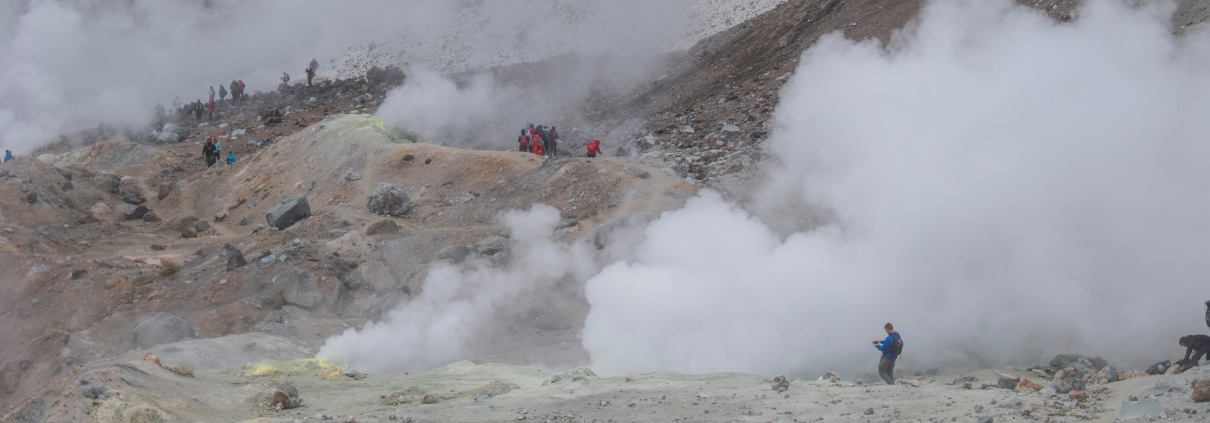Everything to know about Sulphur Dioxide (SO2)
Sulphur dioxide (or: sulfur dioxide, SO2) is a key air pollutant considered vital for monitoring on various air quality guidelines and frameworks, such as the World Health Organization’s. Naturally, this means that we at Breeze Technologies have it on our air quality index (AQI). Read on to find out more.
What is sulphur dioxide?
Sulphur dioxide (SO2) is a heavy, colourless, and poisonous gas with a pungent and irritating odour. Its smell is often described similar to that of a burnt matchstick. The gas forms secondary particulate matter (PM2.5) when it oxidizes to sulphuric acid (H2SO4) by combining with water vapour. It also reacts with ammonia (NH3) to create another dangerous compound called ammonium sulphate ((NH4)2SO4).
SO2 also contributes to sulphurous smog, which results from a high concentration of sulfur oxides (SOx) in the atmosphere and is exacerbated by dampness and particulate matter (PM).
What are sources of sulphur dioxide?
Sulphur dioxide is released into the atmosphere through:
- Burning fossil fuels (coal, oil) for domestic heating, transport (locomotives, ships), power plants, and other industrial facilities
- Smelting mineral ores that contain sulphur (iron pyrite, copper pyrite)
- Natural volcanic activity
Where do you find the world’s highest SO2 concentrations?
The world’s sulfur dioxide hotspots are:
- India as the largest emitter of SO2 in the world, contributing more than 21% of global emissions mainly coming from coal-based electricity generation.
- Russia as the second largest emitter of SO2, causing approximately 12% of global emissions. Most of the SO2 emissions stem from smelters (75%), followed by oil and gas (15%), and coal (10%).
- China emitted approximately 8% of global SO2 emissions – mainly stemming from its coal-fired power generation, which has the largest capacity in the world.
There is a relationship between nations’ wealth and their emission trends: Less wealthy countries tend to have faster sulfur dioxide emission growth rates while high-income countries tend to have slower growth rates.
What is the health impact of sulphur dioxide?
As an irritant, sulfur dioxide can affect lung function and cause and worsen respiratory diseases in humans and animals. Some of SO2’s direct health effects include:
- Eye irritation
- Wheezing, shortness of breath, chest tightness
- Aggravation of asthma and chronic bronchitis
- Inflammation of the respiratory tract (coughing, mucus secretion)
In the long term, SO2 exposure leads to an overall increase in hospitalization rates for cardiac diseases, and overall higher mortality rates.
What is the environmental impact of sulphur dioxide?
As mentioned earlier, sulphur dioxide is capable of turning into sulphuric acid (H2SO4), which is a major component of acid rain. Acid rain has many harmful effects, such as:
- Acidifying aquatic ecosystems (lakes, streams, wetlands), which lowers biodiversity by killing plants and animals
- Deforestation through the damaging of vegetation
- Depriving the soil of essential nutrients (calcium, aluminum, magnesium)
- Corroding buildings and materials
How can sulphur dioxide emissions be lessened?
Only the implementation of targeted measures can reduce sulphur dioxide emissions. Some of them are:
- Shifting from high-sulphur solid (coal) and liquid (heavy fuel oil) fuels to low-sulphur content fuels (natural gas)
- Installing flue gas desulphurization abatement technology in industrial facilities
- Limiting the sulphur content of transport (e.g. car) fuels
- Closing down older, less-efficient power plants
However, clean air actions are only effective with proper monitoring. At Breeze Technologies, we offer both urban and industrial air quality monitoring and management solutions that provide real-time, hyperlocal ambient emissions data through our lower-cost sensors and our groundbreaking Environmental Intelligence Cloud. The insights presented allow you to track the short- and long-term successes of your clean air action programs and policies, thus making clean air a reality for all. Contact us today for more information!



